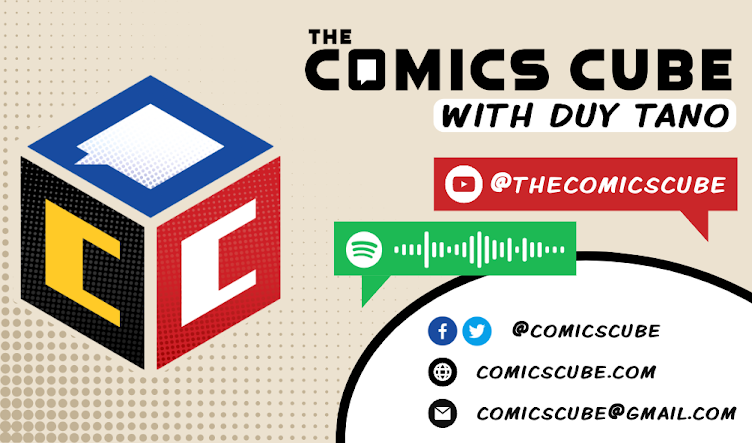Welcome to a new installment of Comic Book Glossary! One of the aims of
the Comics Cube! has always been to help out the newer readers who
may be interested in, but aren't all that knowledgeable in comics, and
one thing everyone needs to know if they're interested are the terms.
Click here for the index!
Today's word is "bleed," and that's a general term in the print industry. In comics, it basically means when a drawing isn't contained by panel borders and "bleeds" out to the rest of the page. A bleed has several applications. Sometimes it's just used for a splash page.
Sometimes it's used when a sequence is taking place "behind" the panels on the page.
And sometimes it's used just for one panel.
But the effect is almost always the same: it's about involving the reader. Scott McCloud states in Making Comics that bleeds can open up a scene not just because it has more space, but because since we're so conditioned to treat panels as windows, if we can't see the frames, then it means we're through the window and into the world beyond it. In a way, it's kind of like zooming in without actually having to zoom in.
It's particularly effective when used in establishing shots.
All examples for this piece are from Frank Miller's The Dark Knight Returns!




